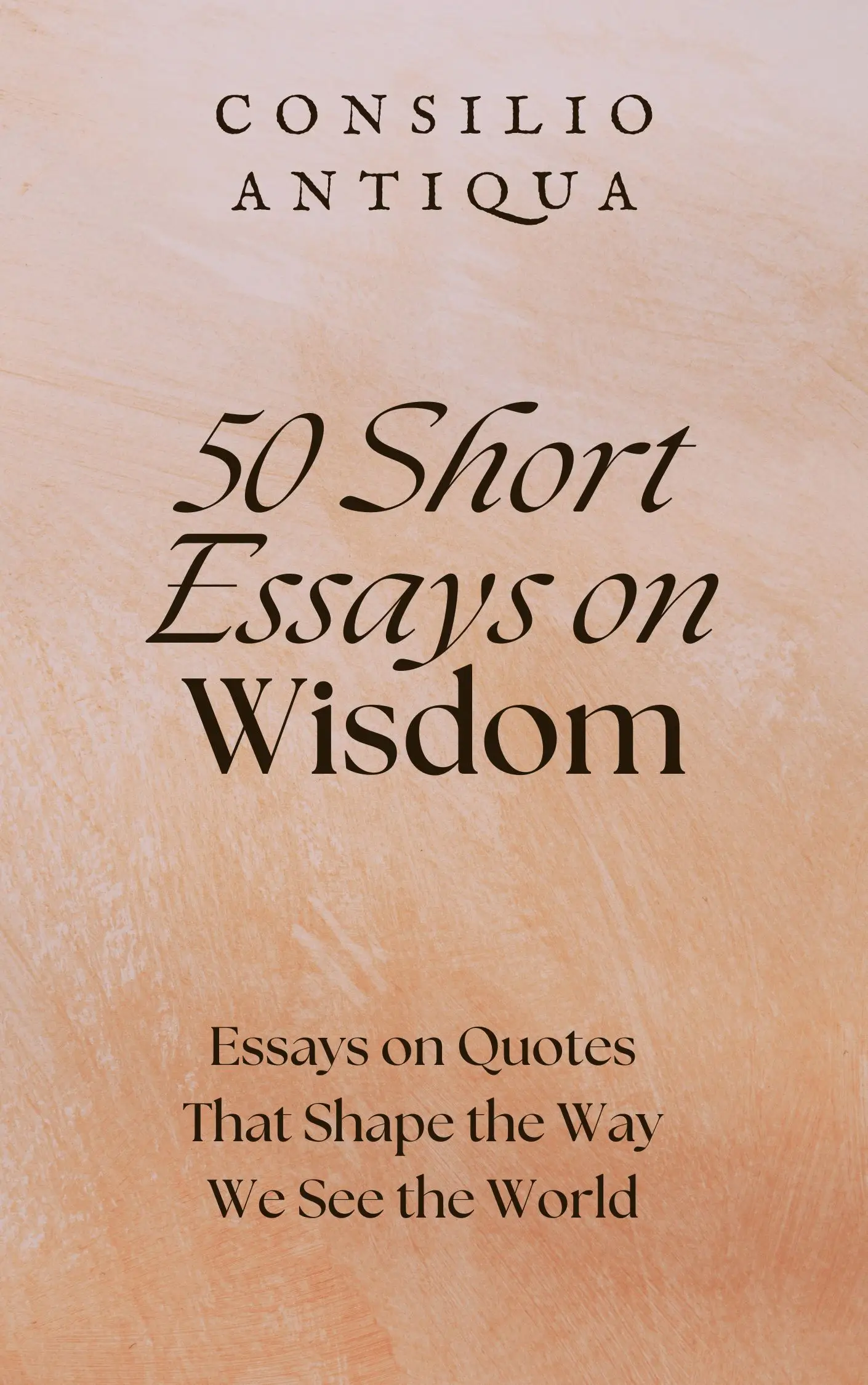
50 Short Essays on Wisdom | The Exquisite Ignorance
The Exquisite Ignorance
"The only true wisdom is in knowing you know nothing." - Socrates
The chipped paint of the ancient amphitheater seemed to whisper secrets to the wind. I sat there, imagining Socrates, his weathered face etched with the lines of countless inquiries, engaging in one of his famous dialogues. The sun beat down, the air thick with the scent of olive trees and dust, yet the questions hung heavier, more profound than the midday heat. Socrates' assertion, "The only true wisdom is in knowing you know nothing," isn't a statement of defeat, but a profound invitation to a lifelong journey of intellectual humility and continuous learning.
Socrates, a figure shrouded in myth and legend, lived in Athens during a period of intellectual ferment. His method, known as elenchus, involved relentlessly questioning assumptions, exposing contradictions, and guiding his interlocutors towards a clearer understanding of their own beliefs. This relentless questioning wasn't about proving others wrong, but about revealing the limits of their knowledge and prompting a deeper, more honest self-examination. His wisdom echoed the ancient traditions of self-inquiry found in Eastern philosophies and mystical practices, emphasizing the vastness of the unknown and the limitations of human perception.
The core of Socrates' wisdom lies not in the absence of knowledge, but in the recognition of its boundaries. To "know you know nothing" is not to be ignorant, but to possess a profound awareness of the immensity of what remains unknown. It's akin to standing on the shore of an endless ocean, the waves of knowledge stretching out before you, their depths unfathomable. This understanding fosters a deep intellectual humility, a recognition that our understanding is always partial, always evolving. This humility, far from being a weakness, is the fertile ground from which true wisdom grows. It fuels a relentless curiosity, a thirst for knowledge that propels us forward on the path of continuous learning. This enduring wisdom resonates because it speaks to the fundamental human condition: our inherent limitations and the infinite potential for growth.
In our modern world, saturated with information, the illusion of expertise abounds. We are bombarded with data, opinions, and "facts," often presented with an air of unshakeable certainty. Socrates' wisdom serves as a crucial antidote to this pervasive phenomenon. Consider the scientific method, with its emphasis on hypothesis testing, falsification, and continuous refinement of knowledge. The very essence of scientific progress lies in acknowledging the provisional nature of our understanding. Similarly, in the realm of personal relationships, the ability to acknowledge our own biases and limitations is essential for empathy, understanding, and genuine connection. Failing to recognize the limits of our knowledge can lead to misunderstandings, conflicts, and missed opportunities for growth. The ability to say, "I don't know," is not a sign of weakness, but a testament to intellectual honesty and a willingness to learn.
I recall a time when I stubbornly clung to a belief, certain of its truth. Only through rigorous self-reflection and open dialogue with others did I realize the limitations of my perspective. This humbling experience, though initially uncomfortable, paved the way for a deeper understanding and a more nuanced perspective. What assumptions are you holding onto? What beliefs are you unwilling to question? What would happen if you embraced the exquisite ignorance, the humbling awareness that you know far less than you think you do?
Socrates' wisdom isn't a destination, but a journey. It's a continuous process of questioning, learning, and refining our understanding. It's about embracing the unknown, not with fear, but with curiosity and a deep sense of wonder. The path to true wisdom, then, is not about accumulating knowledge, but about cultivating the humility to acknowledge the vastness of what we don't know, and the courage to embark on the journey of discovery. The journey itself, with its twists and turns, its moments of doubt and illumination, is where true wisdom resides.
